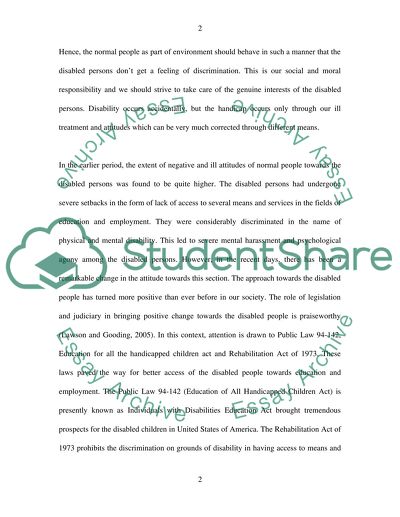Cite this document
(“Attitudes Towards Disabled People Are Now More Positive Than They Have Assignment”, n.d.)
Attitudes Towards Disabled People Are Now More Positive Than They Have Assignment. Retrieved from https://studentshare.org/sociology/1448304-critically-discuss-the-following-statement
Attitudes Towards Disabled People Are Now More Positive Than They Have Assignment. Retrieved from https://studentshare.org/sociology/1448304-critically-discuss-the-following-statement
(Attitudes Towards Disabled People Are Now More Positive Than They Have Assignment)
Attitudes Towards Disabled People Are Now More Positive Than They Have Assignment. https://studentshare.org/sociology/1448304-critically-discuss-the-following-statement.
Attitudes Towards Disabled People Are Now More Positive Than They Have Assignment. https://studentshare.org/sociology/1448304-critically-discuss-the-following-statement.
“Attitudes Towards Disabled People Are Now More Positive Than They Have Assignment”, n.d. https://studentshare.org/sociology/1448304-critically-discuss-the-following-statement.


